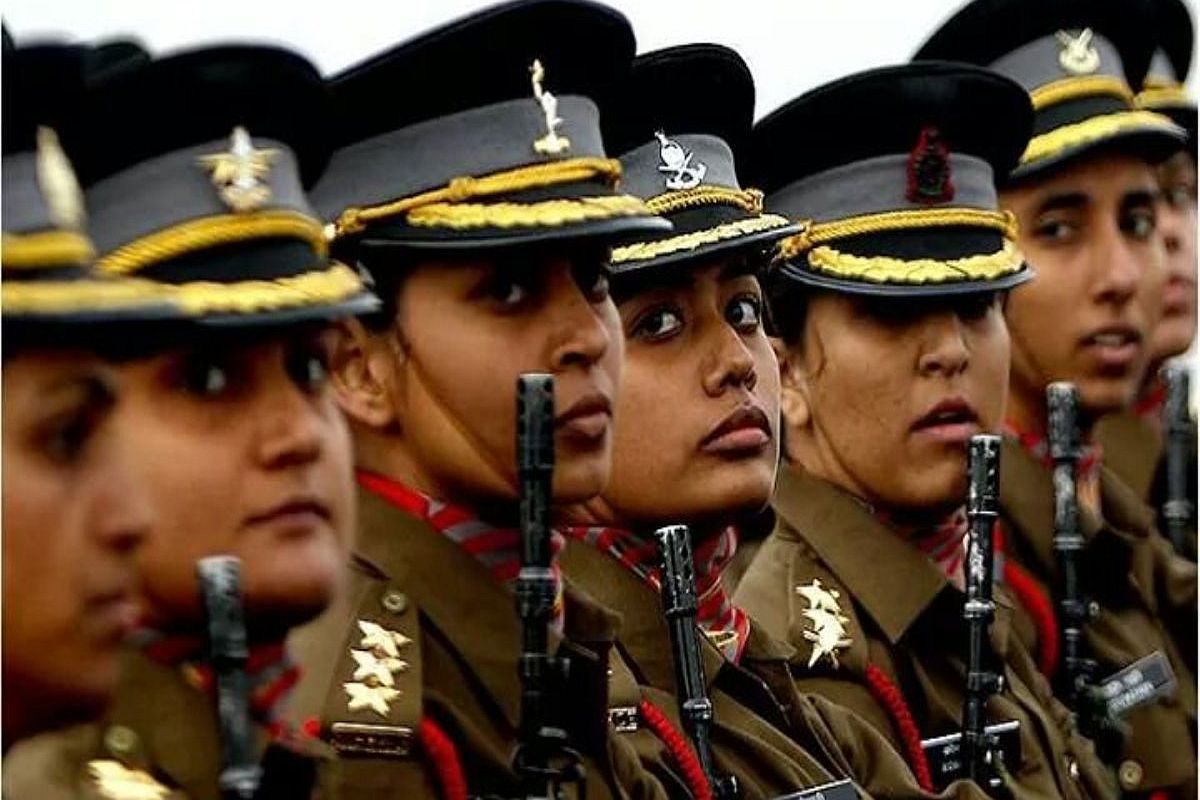India’s Got Latent: SC issues notice on YouTuber Ashish Chanchlani’s plea against FIRs
SC issues notice on YouTuber Ashish Chanchlani’s plea to quash or transfer FIR in India’s Got Latent case; tagged with Ranveer Allahabadia’s petition.
However, when the gates of the institute opened on 15 August 1995, 19- year-old Shannon Faulkner left the institute within a week citing psychological abuse and later she became a middle school teacher in South Carolina.

The permanent commission will apply to all women officers in the Army in service, irrespective of their years of service. said SC (File Photo: Twitter/@adgpi)
The recent Supreme Court ruling granting permanent commission to women on par with men will have a far-reaching impact in promoting gender justice. The court held, “An absolute bar on women seeking criteria or command appointments would not comport with the guarantee of equality under Article 14”.
The judgment, seen as a landmark, means that women officers will now get opportunities on par with men in promotions, ranks, benefits and pensions, irrespective of their years of service or whether they had retired. Currently, women are inducted into the army through Short Service Commissions, which permits them to serve for only 10 to 14 years. The Union government agreed last year to give permanent commissions to women, but with a rider that it would only apply to female officers who had served less than 14 years.
Advertisement
The petitioners, a group of 332 women army officers, who joined the army from 1993 onwards, argued that the present policy was discriminatory. Earlier their plea was partially accepted by the Delhi High Court in March 2010, but the defence ministry appealed against in the Supreme Court and also did not implement the order though there was no stay granted by the Apex Court.
Advertisement
One of the most important things to emerge from this judgment is the utter rejection of regressive arguments provided by the Centre. The court rejected the ministry’s argument that “(Indian) troops are not yet mentally schooled to accept women officers in command of units” because they (the men) are “predominantly drawn from a rural background.”
The SC observed: “The submissions advanced in the note tendered to this Court are based on sex stereotypes premised on assumptions about socially ascribed roles of gender which discriminate against women.” The apex court also dismissed the defence ministry’s contention that “owing to their prolonged absence during pregnancy, motherhood and domestic obligations towards their children and families,” women are not equipped to deal with “the hazards of service.”
Justice D Y Chandrachud rightly remarked that, “Two things are required to rid any form of gender discrimination – administrative will and change in mind set”. As in many other fields like judiciary, journalism, politics, police and other professions, women work in a man’s world in the army. Despite so much progress in the world on equality of women, the male dominated Defence services have not yet got an open mind. The judges rebuked the government, describing its views as “disturbing” and urged “the need for change in mind-sets to bring about true equality in the army”.
While Defence Minister Rajnath Singh has welcomed the Supreme Court’s order, the proof the pudding lies in the eating and how the government implements the order and provides gender justice. The government should ensure that women get proper respect in their new command jobs. The initial response from army chief General M.M. Naravane is quite encouraging. He said after the verdict, “I must assure that everybody in the Indian Army, including women officers, will be given equal opportunity to contribute to the Nation as also progress in their careers.”
The judgment will immediately impact 322 women officers in the army. It will also have a bearing on future recruits. However, it will take some time for male officers to accept the change and it is for the senior officers and political leadership to implement this. Interestingly, the judgment also emphasised a need for mind-set change. I recall a case in the US when the Supreme Court ordered the Citadel, South Carolina’s state supported military institute, to grant admission to its first female cadet.
However, when the gates of the institute opened on 15 August 1995, 19- year-old Shannon Faulkner left the institute within a week citing psychological abuse and later she became a middle school teacher in South Carolina. Already the Supreme Court has delivered some landmark judgments like Triple Talaaq, sexual harassment at the workplace, recognizing live-in relationships, unwed mothers not needing to name the fathers, stopping the two finger test for rape victims, and that prostitutes have a right to live with dignity etc., which would enable gender justice.
Lack of education, development, poverty, lack of enforcement of laws, and economic dependence of women etc., are the main reasons for gender inequality. As the Apex court has noted, for this the mind-set needs to be changed in favour of women. Though India has had a woman Prime Minister, many chief ministers and party chiefs, much more needs to be done on treating women as equals and gender justice is the right route for development of the country as a whole. If almost half the population is suppressed India cannot become a global power it aspires to be. It is heartening to see that the judiciary has taken note of it and is moving towards the path of providing gender justice.
Advertisement